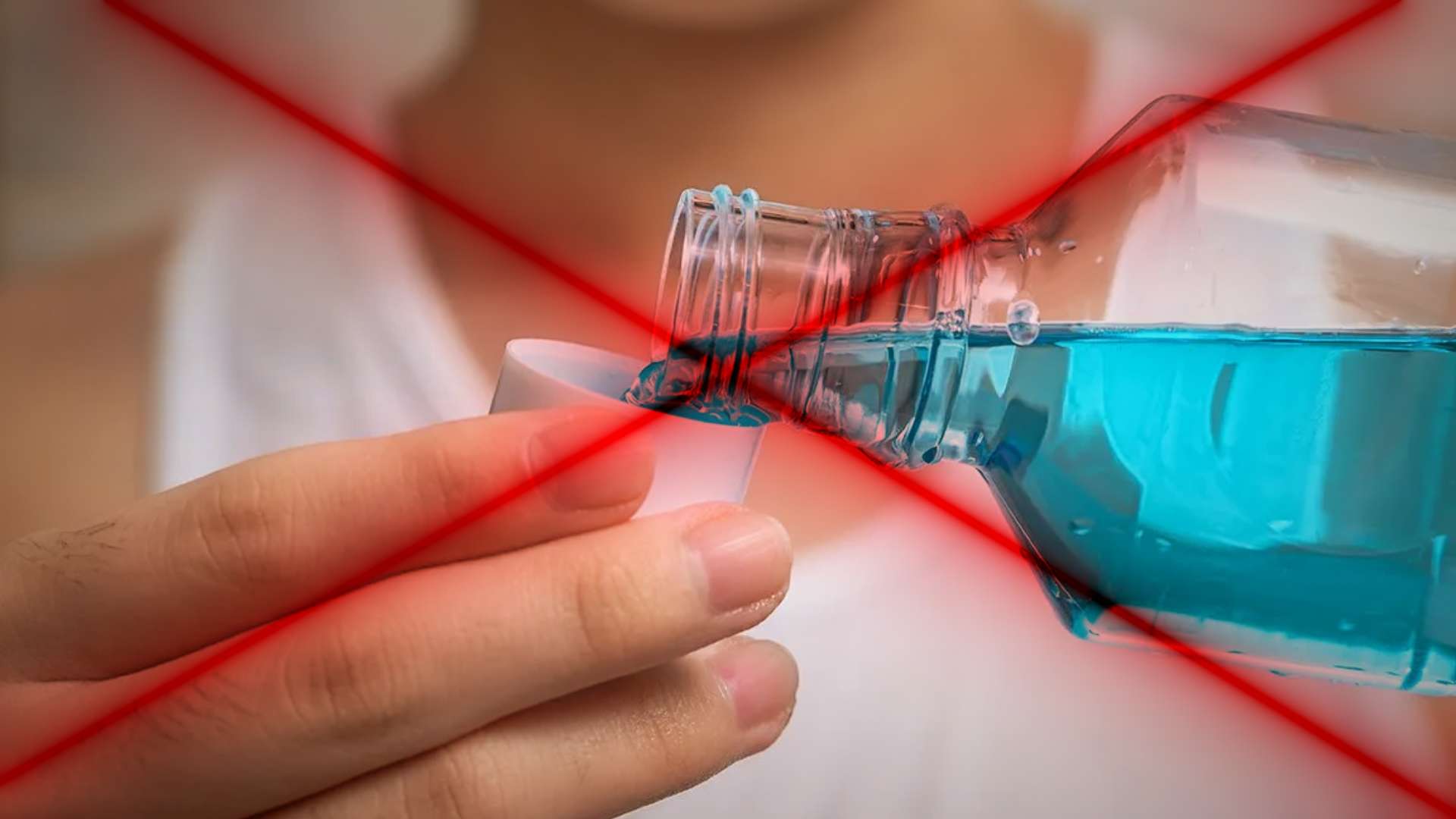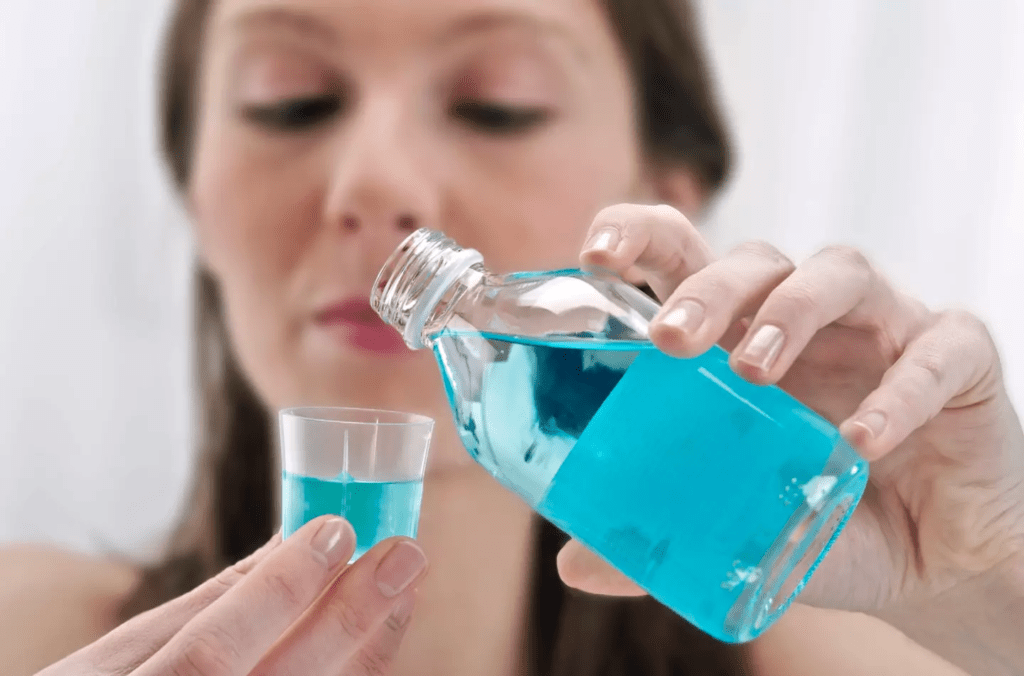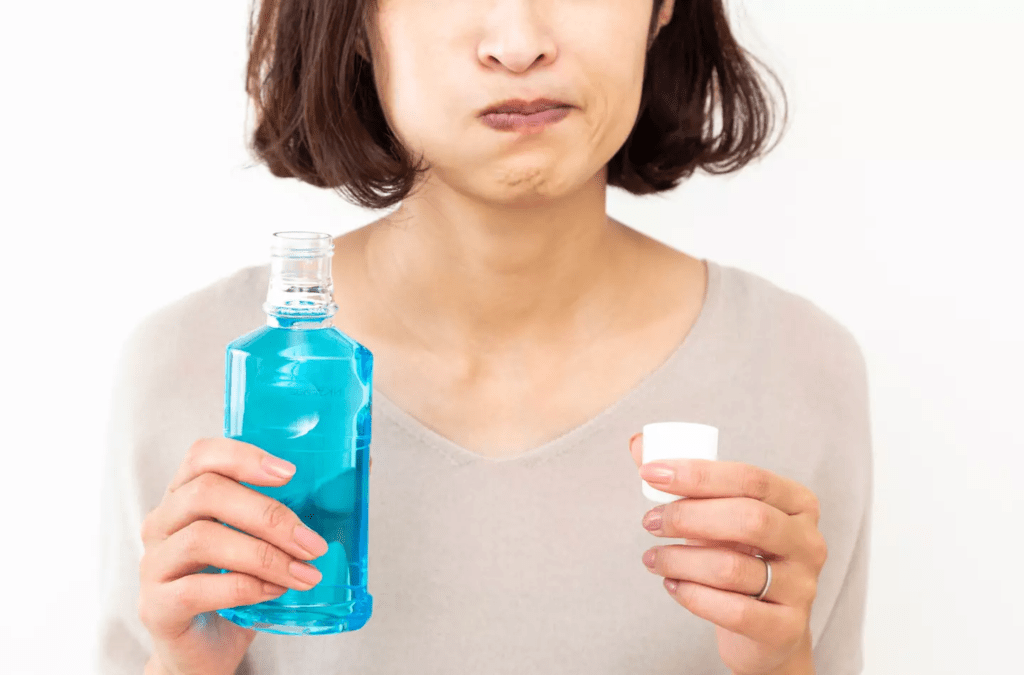Doctor Issues Strong Warning on Cancer Risks Linked to Mouthwash Use

Why You Might Want to Reconsider Your Oral Hygiene Routine
In a world where maintaining fresh breath and oral hygiene is a daily priority, many people turn to mouthwash as a quick solution. However, a recent podcast featuring Dr. Karan Rajan, a British NHS surgeon, has shed light on the potential dangers associated with certain mouthwashes. Dr. Rajan strongly advised against the regular use of alcohol-based mouthwashes, suggesting that they could increase the risk of developing specific cancers.
The Hidden Dangers of Alcoholic Mouthwash
Mouthwash is often marketed as an essential part of oral hygiene, promising fresh breath and protection against bacteria. Yet, Dr. Rajan warns that the alcohol content in many mouthwashes could do more harm than good. He explained that alcohol-based mouthwashes have the potential to disrupt the delicate balance of the oral microbiome, a complex community of bacteria essential for maintaining oral health.

What Is the Oral Microbiome?
The oral microbiome is a collection of microorganisms, including bacteria, viruses, and fungi, that live in the mouth. These organisms play a vital role in keeping your teeth and gums healthy. They help in breaking down food, preventing tooth decay, and defending against harmful pathogens.
Disrupting this balance with alcohol can lead to the death of beneficial bacteria, leaving your mouth vulnerable to various issues. Over time, this can compromise your oral health, leading to problems like gum disease and tooth decay.
Learn More: Understanding the Oral Microbiome and Its Importance
The Science Behind the Warning
Dr. Rajan provided a detailed explanation of why alcohol-based mouthwashes can be harmful. Unlike alcoholic beverages, which are diluted and consumed quickly, mouthwashes contain higher concentrations of alcohol. When you use mouthwash, you swish it around your mouth for a minute or more, allowing the alcohol to come into prolonged contact with your oral tissues.
This extended exposure can have several negative effects. Alcohol disrupts the natural balance of bacteria in the mouth, leading to an overgrowth of harmful bacteria and a reduction in the beneficial ones. This imbalance can cause inflammation and increase the risk of infections.
Furthermore, some studies suggest that chronic use of alcohol-based mouthwash might be linked to a higher risk of certain cancers, particularly colorectal cancer. The disrupted microbiome can lead to systemic inflammation, which is a known risk factor for cancer development.
Further Reading: Alcohol and Its Effects on the Oral Microbiome
Other Health Risks
In addition to the potential cancer risks, Dr. Rajan highlighted several other health issues associated with the use of alcohol-based mouthwash:
- Burning Sensation: Many users report a burning sensation in the mouth, which can be uncomfortable and even painful.
- Mucosal Pain: Alcohol can irritate the mucous membranes, leading to discomfort and pain.
- Damage to Fillings: Composite fillings are susceptible to softening when exposed to alcohol, potentially leading to dental problems.
- Teeth Staining and Enamel Erosion: Alcohol can contribute to teeth staining and weaken enamel, making teeth more prone to cavities.
- Ulcers: Prolonged use of alcohol-based mouthwash can cause mouth ulcers, which are painful and can make eating difficult.

Explore More: Health Risks of Alcohol-Based Mouthwash
Social Media Reactions: What People Are Saying
The podcast episode featuring Dr. Rajan’s warnings quickly gained traction on social media, sparking a wave of reactions from users across various platforms. Many expressed surprise and concern, while others shared their personal experiences with mouthwash. Here are some notable social media posts:
Twitter Post:
“Did you know your mouthwash might be doing more harm than good? 🤔 Listen to what Dr. Karan Rajan has to say about alcohol-based mouthwashes and their link to cancer risks! #OralHealth #MouthwashRisks”
Instagram Post:
“Think twice before you swish! 🚫🦷 Alcohol-based mouthwashes could disrupt your oral microbiome and increase health risks. Learn more from Dr. Karan Rajan’s latest podcast episode. #HealthyTeeth #OralCare”
Facebook Post:
“Shocking revelations about your daily oral care routine! 😱 Dr. Karan Rajan explains the hidden dangers of alcohol-based mouthwashes. Share your thoughts below! #DentalHealth #CancerAwareness”
These posts highlight the growing awareness and concern about the potential risks of using alcohol-based mouthwashes. Many users are now seeking alternative products and revisiting their oral hygiene routines.
Alternatives to Alcoholic Mouthwash
Given the risks, Dr. Rajan advises consumers to read product labels carefully and opt for non-alcoholic mouthwashes. These alternatives are formulated to be gentler on the oral microbiome while still providing the benefits of fresh breath and bacterial reduction.
Non-alcoholic mouthwashes typically contain ingredients like fluoride, essential oils, and antibacterial agents that are effective without the harsh effects of alcohol. They help maintain the natural balance of bacteria in the mouth, promoting overall oral health.
Check Out: Best Non-Alcoholic Mouthwashes
Insights from a Dental Hygienist
Joining the conversation was Whitney DiFoggio, a respected American dental hygienist. DiFoggio echoed Dr. Rajan’s sentiments, emphasizing that mouthwash is not a necessity for maintaining oral health. She stressed that good oral hygiene practices, such as brushing and flossing, are more than sufficient for keeping teeth and gums healthy.
“You don’t need a mouthwash,” DiFoggio explained. “Brushing with a toothbrush and using something to clean between your teeth is what’s necessary. Cover all surfaces of your teeth—fronts, backs, tops, and bottoms—for effective cleaning.”
She pointed out that using mouthwash immediately after brushing could wash away the protective fluoride from toothpaste, reducing its effectiveness.
Learn More: Essential Oral Hygiene Practices
Certainly! Here’s an expanded version of the “When and How to Use Mouthwash Properly” section:
When and How to Use Mouthwash Properly
For those who still prefer to use mouthwash, understanding the right timing and method of use is essential to maximize its benefits while minimizing potential risks. Whitney DiFoggio suggests that using mouthwash after meals is more effective than using it immediately after brushing your teeth. This allows the fluoride from toothpaste to remain on the teeth longer, providing better protection against cavities and strengthening enamel.
Key Recommendations:
- Use Mouthwash After Meals: Rinsing after meals can help remove food particles, neutralize acids, and freshen breath without interfering with the protective effects of fluoride from toothpaste.
- Wait Before Eating or Drinking: It’s important to wait at least 30 minutes after using mouthwash before eating or drinking. This waiting period allows the active ingredients in the mouthwash to work effectively and prevents diluting or washing them away too soon.
- Choose the Right Product: Not all mouthwashes are created equal. Selecting a non-alcoholic mouthwash with fluoride or natural antibacterial ingredients can help maintain a healthy oral microbiome without the adverse effects associated with alcohol-based products.
Additionally, it’s essential to follow the instructions on the mouthwash label regarding the amount to use and the duration for which you should swish the liquid. Overusing mouthwash or using too much at once can lead to irritation or reduced effectiveness. Incorporating mouthwash as part of a comprehensive oral hygiene routine, alongside brushing and flossing, ensures optimal oral health.
Read More: Proper Use of Mouthwash
Conclusion
While mouthwash can be a beneficial addition to your oral hygiene routine, it’s crucial to choose the right type and use it correctly. Alcohol-based mouthwashes, though popular, carry risks that shouldn’t be ignored. Opting for non-alcoholic alternatives and focusing on good brushing and flossing habits can help protect your oral and overall health.
Moreover, it’s essential to understand that maintaining a healthy oral microbiome goes beyond just avoiding harmful products. A balanced diet, regular dental check-ups, and mindful oral hygiene practices all play vital roles. By being informed and making thoughtful choices, you can ensure not only a healthier smile but also reduce the risk of serious health issues like cancer. Always consult with a dental professional to find the best products and practices for your unique needs, and stay updated with the latest research to make informed decisions about your health.
Featured Image Credit: Getty Stock Image






